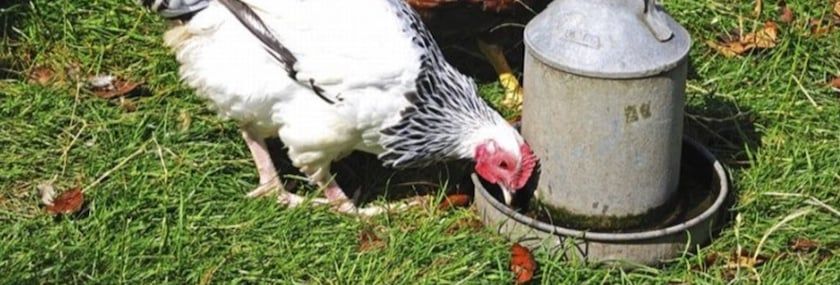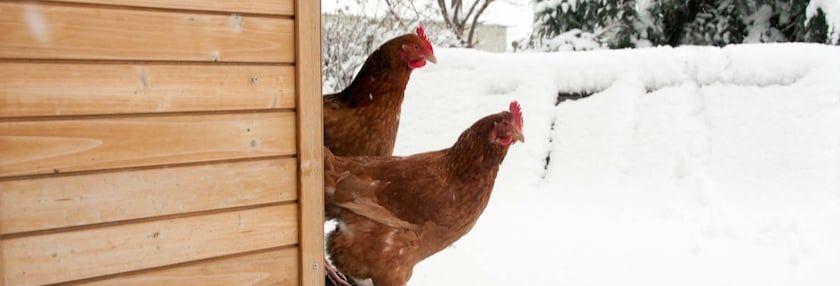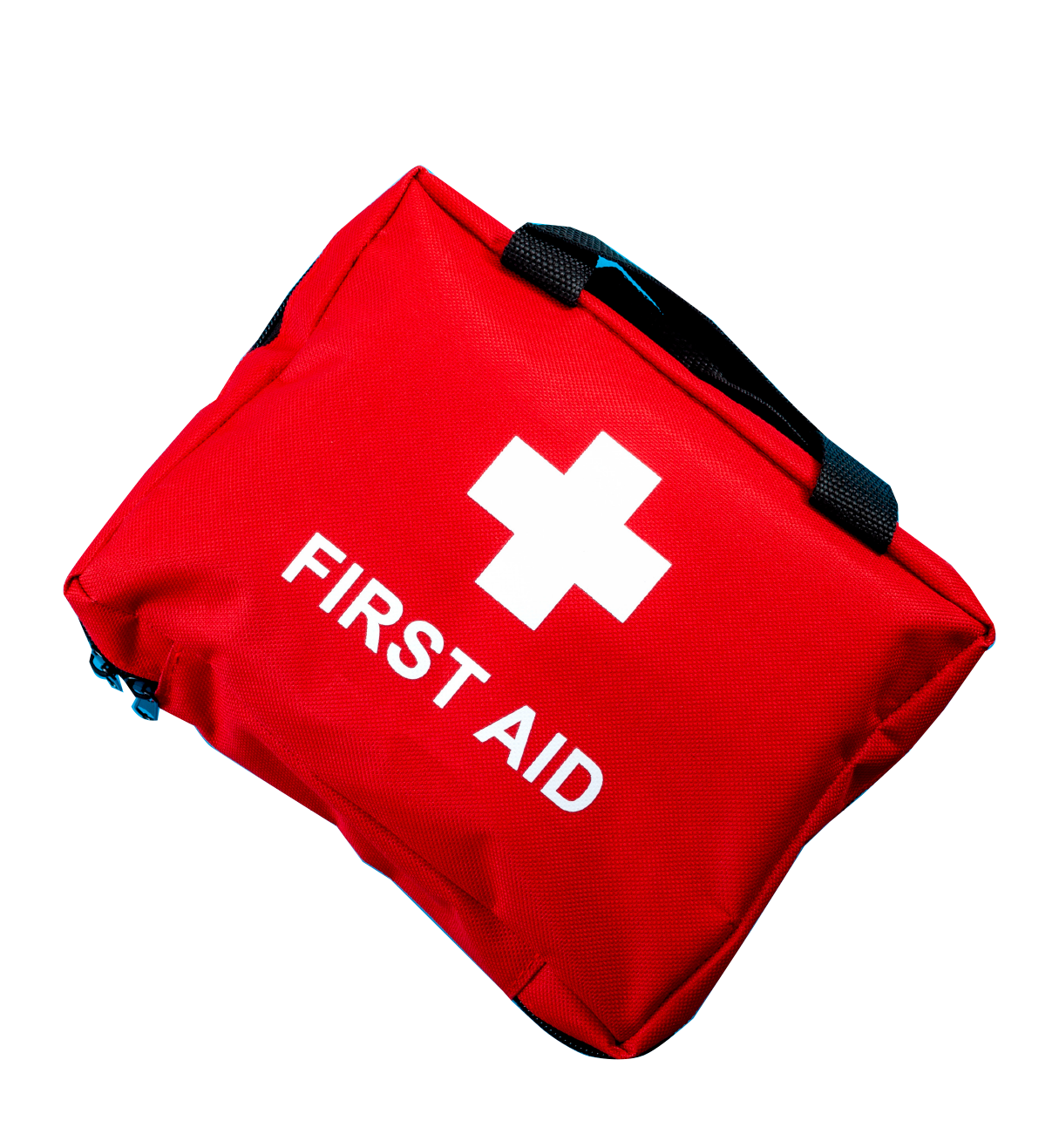Summer Nutritional Requirements


Keeping your flock healthy this season
Birds have a known zone of relative thermal comfort called the thermoneutral zone. This can vary by the physiological status of the bird, ambient relative humidity, ambient air speed, and amount of direct sunlight the birds receive.
The thermoneutral zone for laying hens is 55°F. to 75°F. and is typically higher for younger, still-growing birds. Temperatures that fall below the thermoneutral zone would be characterized as “cold stress” conditions, while temperatures that exceed the thermoneutral zone would be referred to as “heat stress” conditions.
As we approach the hot summer months, you may be thinking about preparing your flock for the upcoming heat. Heat stress can pose a big risk to the health and well-being of your flock: it can decrease productivity, reduce feed utilization, and impair immune status. However, with a few simple tips and hints, you can prepare your coop and your flock for a successful summer season.
Energy requirements
Environmental temperature plays a big role in the amount of energy your hens expend in order to maintain normal body function and egg production. Laying hens require four- to ten-percent less energy in the summer months than during winter because they don’t have to use as many calories to maintain proper body temperature. Most animals eat to meet their energy requirements, so don’t be surprised to see your hens eating less feed in the summer months.
Since your hens may be consuming less feed during the summer heat, it is essential that they are consuming the ideal balance of protein, vitamins, and minerals so they can continue to produce high quality eggs. It is very important to provide a complete poultry feed for your hens at all times.
You will likely find that your birds consume most of their feed during the cooler portions of the day, like early in the morning and later in the evening, so be particularly sure that feed is available at these times. If you see a decrease in egg production, consider using a complete feed that has higher levels of crude protein, vitamins, and minerals to account for any decreases in feed consumption related to the higher ambient temperatures.
Water
There are six classes of nutrients: protein, carbohydrates, fat, vitamins, minerals, and, arguably the most important, water. Water is one of the most essential nutrients to consider in times of extreme heat. At temperatures above 80°F., hens will increase water consumption and pant in order to dissipate heat. It is important that cool fresh water be available to your hens at all times because the process of panting removes a lot of moisture from the body and can quickly lead to dehydration.
In times of heat stress, it is important that the poultry grower do as much as possible to help keep their birds cool in an attempt to regulate internal body temperature. Remember, body temperature reduction is much more efficient if the temperature of the water is cooler than the outside air temperature.
You can help keep the water in your coop cool and clean by replacing it multiple times throughout the day. Above-ground water catchment systems can get very hot in the summer months, so consider providing cooler water from a clean well or tap. You can also use frozen water bottles in your drinkers to help keep the water cool throughout the day.
Electrolytes
Similar to mammals, birds will excrete more electrolytes during periods of heat stress. The complete poultry feed you are feeding your birds should contain adequate levels of the electrolytes sodium, potassium, chloride, and magnesium to support optimal performance under normal temperatures.
However, when ambient temperatures exceed 85°F, feed consumption will be noticeably reduced and you should expect a severe reduction in feed consumption at temperatures above 95°F. Subsequently, you’ll also see an increase in water intake and panting to dissipate heat, which reduces the overall concentration of electrolytes circulating in the blood stream. During the high heat of the summer months, it may be beneficial to supplement your birds' water source in with an electrolyte pack to help replace those lost essential nutrients and ensure your hens remain healthy and productive.
Probiotics and prebiotics
In addition to providing electrolytes, maintaining healthy gut microflora is very important in helping your birds stay healthy and productive during times of summer stress. Birds have a living population of bacteria in their intestines, including both beneficial bacteria such as Lactobacillus spp., as well as harmful or pathogenic bacteria such as coliforms (E. coli).
A healthy bird will typically have a higher relative proportion of beneficial bacteria in the gut. However, in times of stress, this balance can shift in favor of the pathogenic bacteria which can have a negative impact on overall health and the bird’s ability to properly absorb nutrients. Maintaining a high population of these beneficial bacteria in the gut of your birds is critical for maintaining optimum health and production performance.
You can help to keep your birds ahead of the curve by providing them with a feed that has been fortified with probiotics and prebiotics. When fed together, probiotics and prebiotics work to support the growth of beneficial bacteria in the digestive tract of the bird, which in turn can reduce the population of pathogenic bacteria through competitive exclusion. Feeding probiotics and prebiotics to birds not only aids in the prevention of bacterial infections in the digestive tract, but can also improve production performance and immunity. This is an especially important thing to consider during the stress of the summer months.
Vitamins and trace minerals
Vitamins and minerals also play an active role in managing heat stress in birds. The high temperatures of summer can cause an increase in the excretion of vitamins and trace minerals, lowering the levels of these key nutrients in circulating in the bloodstream. The nutrients vitamin E, selenium, and zinc are heavily involved in the antioxidant system of the bird, which functions to detoxify damaging free radicals that may be produced during times of stress. It is important to select a feed for your birds that contain high levels of these trace nutrients in order to maintain optimal bird health.
Heat stress can also reduce the effectiveness of the avian immune system. Trace minerals including zinc have been identified as having a positive effect on the immune system, especially when fed at higher levels. One thing to look for in your poultry feed is the inclusion of chelated trace minerals (those bound to amino acids, peptides, or polysaccharides), which are much more readily available to the bird for incorporation into the tissues than other trace mineral sources.
This will insure that your birds are receiving a consistent and digestible source of trace minerals that function to support the immune system.
At the end of the day
Although we cannot completely escape the high temperatures of the summer, the stresses associated with the heat can be avoided by taking the appropriate steps from a management and nutrition standpoint. This will help keep your flock healthy, comfortable, and productive throughout the entirety of the summer season.
Tags:Healthy Flock

Chicken Whisperer is part of the Catalyst Communications Network publication family.










